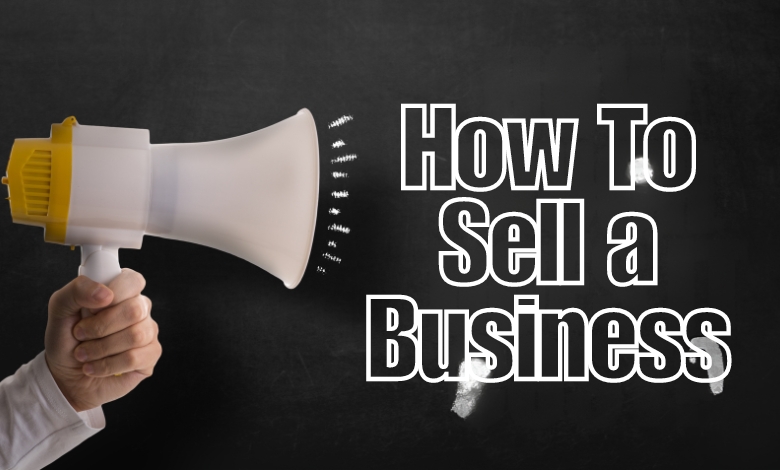Discover how to sell your business and the key steps to sell your business, from using a broker to ensuring a smooth post-sale transition.
I had no clue, when I sold my first business, just how difficult and emotionally draining the process would be.
Having started from nothing and putting endless hours and enormous work into its expansion, I had developed my business. But as the time to move on drew near, I came to see that selling a business is not something you can just jump into without understanding and preparation.
My first effort was marred with mistakes and wasted possibilities. Selling a firm teaches the hard way that it calls for strategic planning, a thorough awareness of market conditions, and—above all—patience in addition to a strong financial track record.
Looking back now with a portfolio of multiple profitable business exits, I see that the foundation of a successful sale is not just in the dynamics of negotiations but also in the work done months, if not years, before. My first mistakes turned into priceless learning that helped me approach next sales. From careful financial documentation to knowledge of customer psychology, every component is absolutely important in obtaining the appropriate value for your business.
I started learning about the process and dug deeply into every element that can affect the result. I want to share with you in this book this cumulative experience. Whether you are thinking about selling your first business or your fifth, my goal is to equip you with the knowledge and tactics that would simplify your path.
Let’s start right now.
Article Breakdown
1) Know Your Why: The Art of Selling with Purpose

It’s important to consider why you’re deciding to sell before delving into the specifics. Knowing your reasons can help you remain focused and make wise decisions all through the process.
Having run my first business for almost ten years, I sold it a few years ago. The choice was motivated by a combination of burned out feelings and a desire to seek new businesses. Knowing my “why” helped me to stay anchored through the ups and downs of the selling process.
These then are some questions you should consider:
Knowing your “why” will guide your choices and enable you to create reasonable sales objectives.
2) Prepare Your Business for Sale

Months of cleaning my financial records and enhancing operational efficiencies followed my decision to sell my second business. This improved the market value of my business as well as the buyer’s due diligence process. Retaining a desired price for your business depends on preparation.
The following are the important actions to make sure your business is market ready:
Valuation and Financial Records
Operational Readiness
Legal Considerations
3) Decide Whether to Use a Broker

I decided to deal with a broker for my first commercial sale. Their knowledge of negotiating agreements and navigating possible hazards was priceless. For my next sale, though, I decided to go alone using my acquired experience.
A major choice is whether to use a broker or sell your business directly. Here are the advantages and drawbacks to take under thought:
Using a Broker
Selling on Your Own
4) Find Potential Buyers

I contacted some rivals and placed my second business on many business-for-sale websites while selling it. Remarkably, a once strong opponent turned out to be the ideal bidder. Finding the suitable buyers is quite vital. These are some places to look for them:
Marketing Your Business
Approaching Competitors and Strategic Buyers
Did you know that occasionally rivals purchase out smaller companies not just to increase their market share but also to eliminate their biggest concerns? It resembles playing Monopoly in the business sector.
5) Screen and Qualify Buyers

I came across an apparently ideal bidder lacking the required money on my last commercial sale. It made clear to me early in the process the need of carefully reviewing financial qualifications. Not every interested party will fit as a buyer. Prospective purchasers’ screening guarantees a seamless transaction.
Qualifying Criteria
6) Negotiate Terms of Sale

I worked out a contract in one of my sales whereby I would remain on as a six-month consultant. Knowing the business will go without a hitch calmed me as well as reassured the customer. Deals are formed or broken in terms of negotiation on the terms of sale. One must be ready and know their basic line of action.
Key Negotiation Points
7) Due Diligence Process

The buyer discovered an unsolved legal issue from years past during the due diligence period of my second business sale. Dealing quickly and honestly helped to preserve confidence and keep the deal on track. Once terms are decided upon, the buyer will investigate the material you have supplied to confirm it. This procedure might be long and consists in:
Areas of Focus
8) Finalize the Sale

My last business sale seemed like a marathon in the end. Ensuring every ‘i’ was dotted and every ‘t’ was crossed called for diligence and patience. When the purchase finished, though, it was really fulfilling. Following proper care will lead you toward completing the deal via a formal agreement.
Legal Documentation
Closing the Deal
9) Post-Sale Transition

I spent three months assisting the new owner in transition after selling my prior business. This not only made their entrance easier but also let me witness the business I created keep growing under fresh direction. A well-considered post-sale transition guarantees the business’s ongoing viability and satisfies your responsibilities to the new owner.
Transition Plan
Wrapping Up
When I think back on my path of selling companies, I have distilled the process into simple steps: determining whether to use a broker or sell on your own, locating and screening possible buyers, negotiating terms, doing due diligence, completing the sale, and organizing a seamless post-sale transition. Every phase guaranteed that my interests and the business’s future were protected by teaching me priceless lessons on the need of strategic planning, extensive screening, and open communication.
Frequently Asked Questions (FAQs)
1) How to Sell a Small Business Without a Broker?
Selling a small business without a broker calls for conducting your due homework up front. You will require:
- Get ready all legally and financially.
- Marketing the business successfully will help it.
- Buyers of screen potential pay great attention.
- Control the due diligence process and bargain on the conditions of sale.
2) How to Sell Your Business Online?
Selling your business online can draw a larger spectrum of purchasers. To perform this:
- List your business on respectable websites designed for business-for-sale.
- Make an interesting listing with accurate financials and specifics.
- Get ready for computerized handling of questions and agreements.
3) How to Price Your Business to Sell?
Correct pricing of your business is absolutely vital. Consider elements like:
- Current state of the market.
- The financial situation and expansion possibility of your business.
- Comparable sales in your sector of industry for companies like.
4) Documents Needed to Sell a Business?
Selling your business will require various important documentation, including:
- Financial statements—balance sheets, profit and loss accounts.
- Last few years’ worth of tax returns.
- List of resources and inventory.
- Contracts between suppliers and customers.
- Lease agreements and other legal documentation.
5) How to Sell Your Business Quickly?
Should you be seeking for a rapid sell:
- Check your money to be in order.
- Open yourself to terms and pricing negotiations.
- Market your business using several outlets.
- To appeal the deal more, think about providing seller finance.



